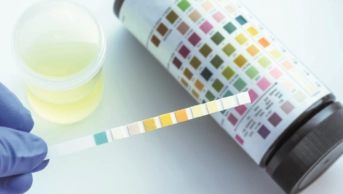
Shutterstock.com
Researchers have found that semaglutide-associated suicidal ideations have been reported 45% more when compared with all other medications globally, according to results of a study published in JAMA Network Open.
The disproportionality analysis — a method that compares the observed proportion of an adverse event for a specific drug to its expected proportion in a given data set — evaluated the potential relationship between suicidal and self-injurious adverse drug reactions (ADRs) associated with the glucagon-like peptide-1 receptor agonists (GLP-1 RAs) semaglutide and liraglutide.
The study, published on 20 August 2024, included analysis of more than 36 million ADRs across 140 countries reported in the World Health Organization’s global database between November 2000 and August 2023.
Analysis revealed 107 reports of suicidal and/or self-injurious ADRs associated with semaglutide and 162 reports associated with liraglutide.
Researchers said semaglutide showed significant disproportionality for associated suicidal ideation compared with all other medications and their suspected ADRs (reporting odds ratio 1.45; 95% confidence interval).
Among patients taking antidepressants, suicidal ideation was reported 4.45 times as likely for semaglutide compared with ADRs from all other drugs.
Researchers did not detect any signals for liraglutide-associated suicidal or self-injurious ADRs.
Semaglutide, traditionally indicated for treatment of type 2 diabetes mellitus, has gained popularity in recent years for its use in aiding weight loss.
In September 2022, the National Institute for Health and Care Excellence recommended semaglutide as an option for weight management.
Regarding indication for GLP-1 RA use in reports in the study, possible off-label use was identified as the main reason for prescription, followed by weight management and diabetes.
Commenting on the study, Riccardo De Giorgi, clinical lecturer in the department of psychiatry at University of Oxford, said: “Disproportionality analysis is used for ‘hypothesis generation’ (rather than testing), meaning that potentially harmful associations need to be verified and quantified in other studies with a different design.
“This is an important, robust study of disproportionality analysis of a rare but serious adverse event, namely suicidality, in people using semaglutide.
He added: “Currently, we do not have any plausible biological explanation behind these potential associations — whether positive, negative, or null.
“A call for caution and for further investigations in these groups of people, including those with pre-existing psychiatric disorders, such as depression, is probably justified.”
However, Stephen Evans, emeritus professor of pharmacoepidemiology at the London School of Hygiene and Tropical Medicine, said: “In my view, this is not a significant or noteworthy paper, and it has major limitations.
“This paper is based just on spontaneous reports, which are sent to regulatory authorities in the country of the person reporting a suspected ADR.
“These are sent by health professionals and patients to authorities, but are very subject to bias, including effects of media reporting. The evidence is extremely weak for a genuine effect in this instance.
“There are other grounds, based on previous evidence and with other drugs, for being cautious in the use of semaglutide … being aware of patients’ mental health when prescribing is sensible, even though semagutide itself seems not to increase mental health problems,” he said.
In July 2023, the European Medicines Agency began conducting a review of GLP-1 RAs following case reports of suicidal thoughts and thoughts of self-injury from people taking liraglutide and semaglutide medicines.
At the time, the EMA said its pharmacovigilance risk assessment committee was analysing around 150 reports of suicidal thoughts and thoughts of self-injury.
It then announced in April 2024 that it had found no evidence that GLP-1 RAs are associated with suicidal and self-injurious thoughts.
In the UK, the Medicines and Healthcare products Regulatory Agency (MHRA) launched a safety review of semaglutide in July 2023.
When approached for comment, the MHRA said it was “in the process of finalising the review”.
Read more: ‘Suicide: how to recognise the warning signs and deal with disclosure‘


